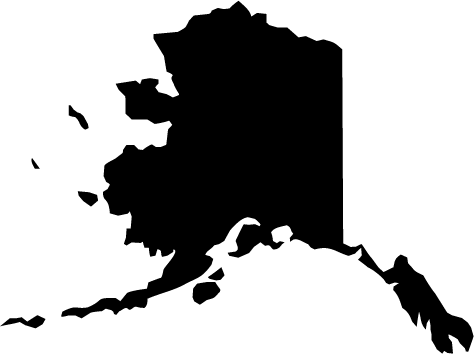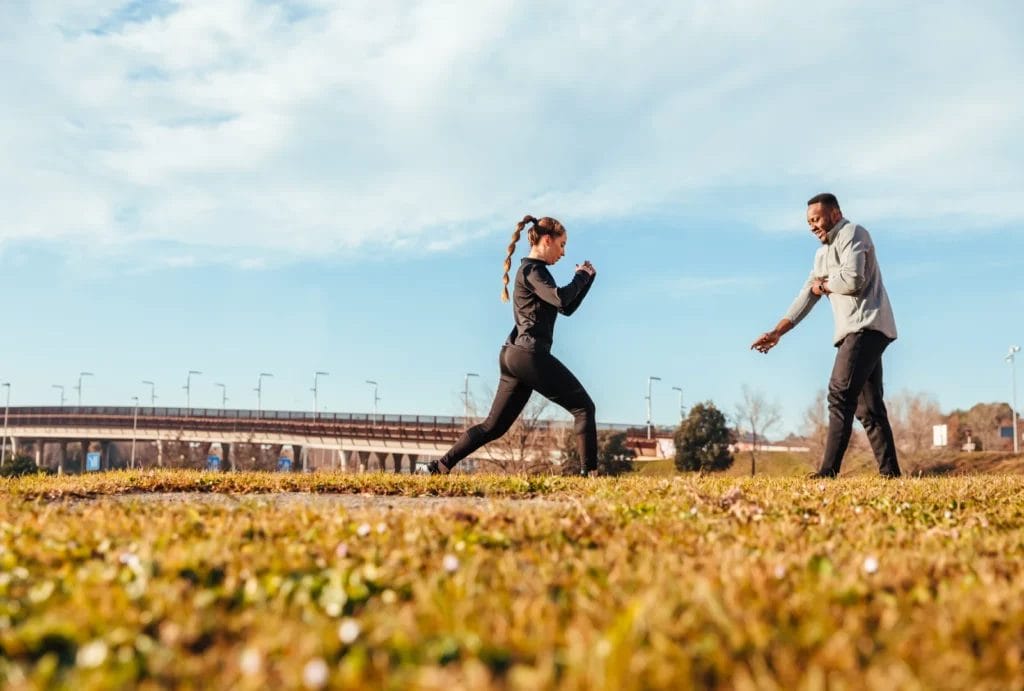
To work as a personal trainer in Alaska you need:
- To be at least 18 years of age with a high school diploma or GED
- A current CPR/AED* certification
- A recognized personal trainer certification
- Liability insurance
*Cardiopulmonary Resuscitation (CPR) / Automated External Defibrillator (AED)
While these are not official legal requirements, they are the accepted industry standards. By equipping yourself with these things, you’ll increase your trustworthiness and appeal to both individual clients and gyms in Alaska.
Age Requirements for Personal Trainers
The minimum age requirement to become a personal trainer in Alaska is 18 (in most circumstances).
Most personal trainer certification programs state that you must be at least 18 years old to take their certifying exam as well. Many will also require you to have a high school diploma or to have passed the equivalent GED (General Education Development) test.

CPR and AED Certification Requirements in Alaska
Typically, personal trainers in Alaska need to have an adult CPR/AED certification. Also, most personal trainer certification programs require you to have this certification before you can take the final exam.*
Depending on the individual health and fitness facility, you may need to have child and infant CPR and/or first aid credentials as well. These are usually offered by the same providers as the standard adult CPR class, like The American Red Cross. They’ll often have classes that cover all of the above at once, too.
CPR training is typically offered online, blended, or in classroom settings. However, the majority of trainer certification agencies require a hands-on practical evaluation via either an in-person or blended course.
For further information about CPR/AED training and where to find a class check out these helpful resources:
*The National Commission for Certifying Agencies (NCCA) states that all personal trainer certifying bodies accredited by the NCCA must require CPR/AED certification.
Alaska Personal Trainer Certifications
Fitness centers generally prefer to hire personal trainers with certifications from an NCCA-accredited program. Most recognized certified personal trainer (CPT) programs have this accreditation.
Pro Tip: Some CPT (certified personal trainer) programs have an open-book or remote exam option. These exams are typically not NCCA-accredited, and therefore may not be accepted at all fitness facilities.
Some of the most popular personal trainer certifications in Alaska are:
- National Academy of Sports Medicine (NASM)
- American Council on Exercise (ACE)
- National Council on Strength & Fitness (NCSF)
To find the best course for you, check out our review of popular CPT programs.
Alaska Personal Trainer Certifications
For most entry-level personal trainer jobs, bachelor’s degrees (and higher) are not required, but they can increase your appeal to employers and qualify you for more advanced work.
You can also consider earning a specialization certificate to help yourself stand out in the Alaska job market.

Alaska Personal Trainer Liability Insurance
As in other states, you’re generally responsible for carrying your own liability insurance as a trainer in Alaska.
You may be covered under some studios’ liability policy if you’ve been hired as an official W2 employee. The facility, however, could still want you to have your own liability policy either way.
If you’re self-employed or working as an independent contractor, you will need your own personal trainer liability insurance to protect you from expensive claims involving things like third-party accidents, injuries, and other physical or perceived damages.
FAQs About Personal Trainer Certification in Alaska
How Much Does It Cost to Become a Personal Trainer in Alaska?
To become a personal trainer in Alaska, you’ll need to get certified, which costs between $400 and $1000 (depending on the program) for the course itself, study materials, the final exam, and CPR/AED classes.
What Are the Typical Salaries for Personal Trainers in Alaska?
Personal trainer pay in Alaska averages $31.59 per hour, with the highest paying cities including:
- Nome: $36.39/hour
- Diamond Ridge: $32.91/hour
- Ridgeway: $31.96/hour
Where Can I Find Personal Trainer Jobs in Alaska After Getting Certified?
Beyond applying to jobs online, leverage your network and talk to local studios, gyms, community centers, and other fitness facilities.
Chain or big box gyms:
Local and/or municipal locations:
- Senior centers
- Community centers
- Retirement communities
- Corporate wellness programs
Boutique studios, independent gyms, resorts and spas, cruises, and others like:
- Southside Strength and Fitness, Anchorage
- The Alaska Club, Multiple Locations
- Grizzly Family Fitness, Palmer
- Princess Cruises
How Long Does It Take To Become a Certified Personal Trainer?
Most certification programs are self-paced, so it can take between one and eight months, depending on how much time you have to study. Most CPT programs, though, estimate from 3-6 months.
How Do I Find Clients as a New Personal Trainer?
When you’re just starting out as an independent personal trainer, it’s important to set yourself apart from the competition from the get-go! Define your niche, network locally, and offer bundles to “hook” new clients as you grow your personal training business.





